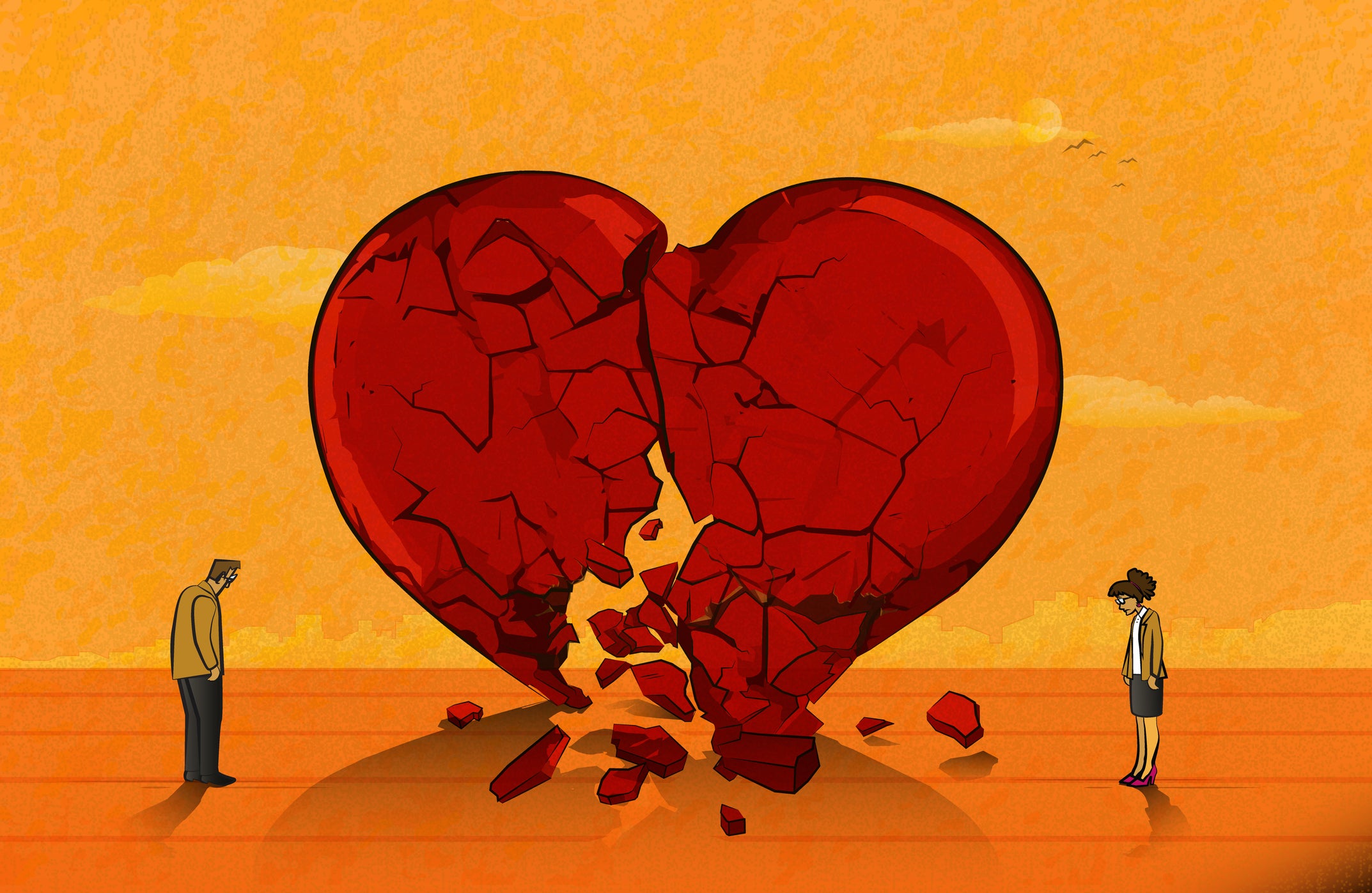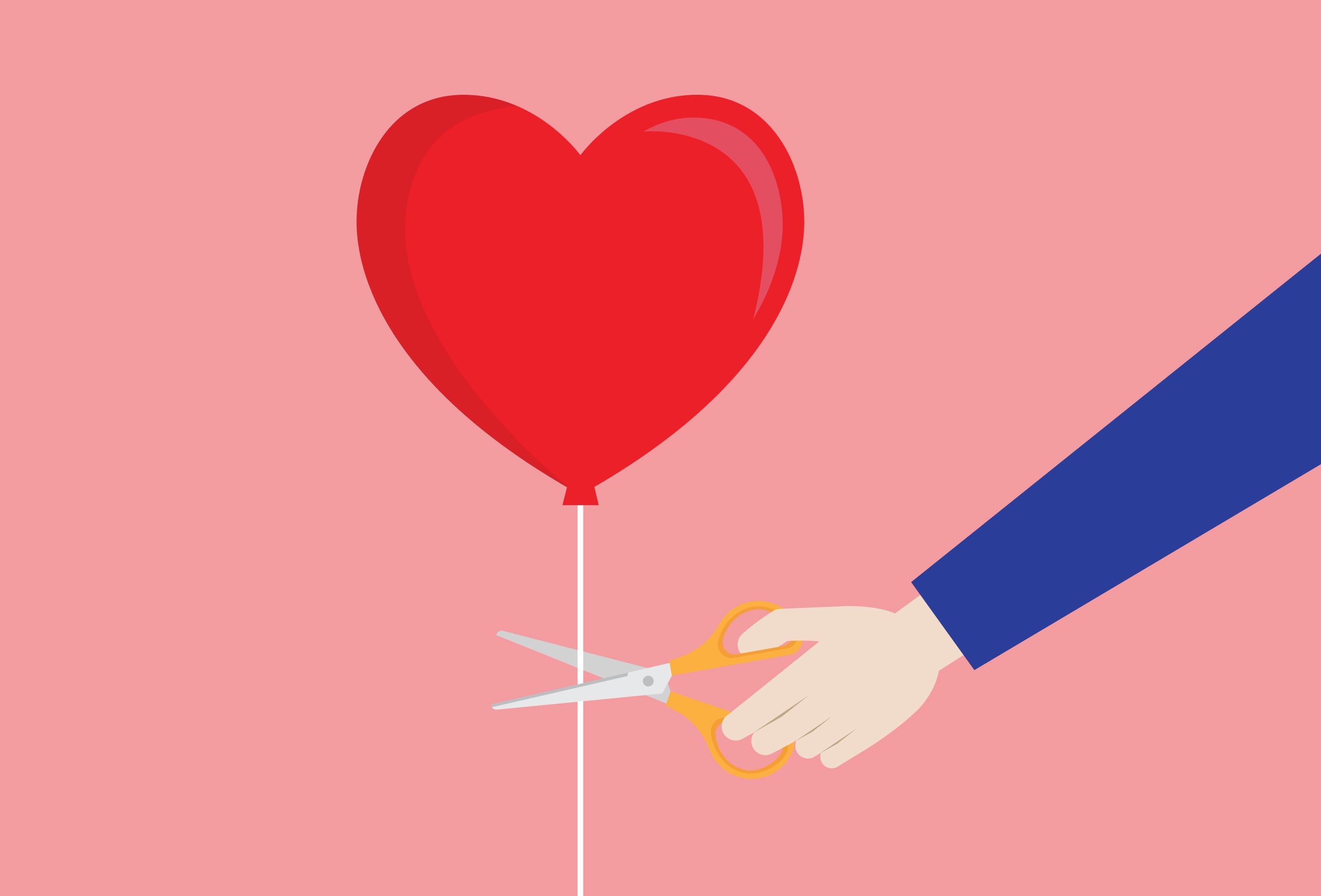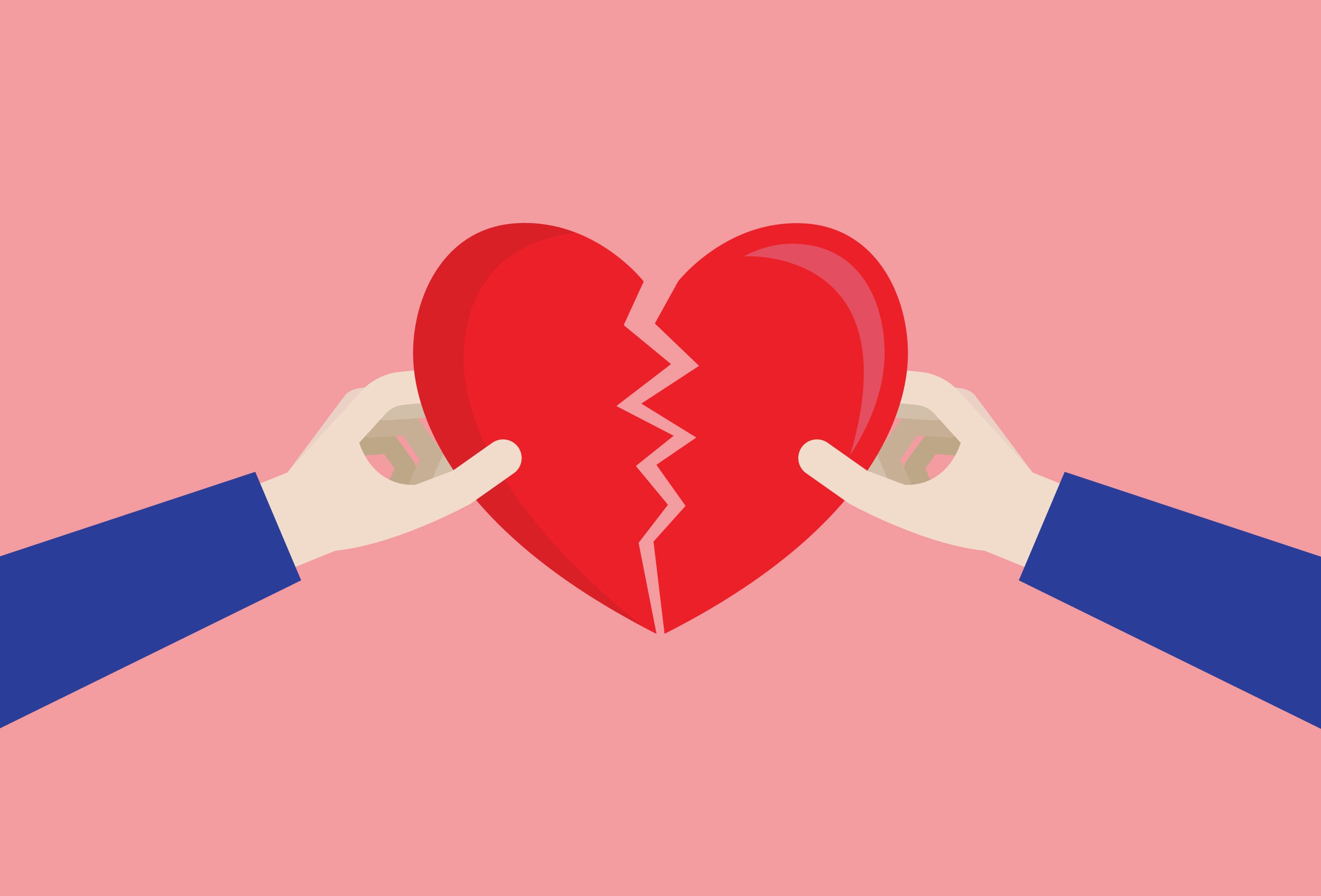The Independent's journalism is supported by our readers. When you purchase through links on our site, we may earn commission.
How to fall out of love
When a relationship ends it can be hard to get over the heartbreak – first we must teach ourselves to fall out of love, writes Allison Hope

Your support helps us to tell the story
From reproductive rights to climate change to Big Tech, The Independent is on the ground when the story is developing. Whether it's investigating the financials of Elon Musk's pro-Trump PAC or producing our latest documentary, 'The A Word', which shines a light on the American women fighting for reproductive rights, we know how important it is to parse out the facts from the messaging.
At such a critical moment in US history, we need reporters on the ground. Your donation allows us to keep sending journalists to speak to both sides of the story.
The Independent is trusted by Americans across the entire political spectrum. And unlike many other quality news outlets, we choose not to lock Americans out of our reporting and analysis with paywalls. We believe quality journalism should be available to everyone, paid for by those who can afford it.
Your support makes all the difference.In May 2020, Omar Ruiz found himself with a broken heart. “My wife told me she was no longer in love with me,” and shortly thereafter, the couple, who had been married 11 years, separated.
Not only was he crushed, he said, but as a marriage and family therapist, “this entire process challenged my professional identity,” said Ruiz, who is 36 and lives in Boston. “How could I help couples when my own marriage is falling apart?”
And so he determined that he needed to fall out of love.
“People say heartbreak is normal, so we shouldn’t try to fix it,” said Sandra Langeslag, an associate professor of psychological sciences at the University of Missouri-St. Louis, who has studied the effects of breakups on the brain. But she points out that there are plenty of common, and even serious, diseases that we try to cure, so “why shouldn’t we try to help people with heartbreak and try to move on?”
Heartbreak has inspired music, poetry, visual art, wine-enhanced listening sessions with friends and even a new hotel. And regardless of the reason – whether death, cognitive impairment, divorce or otherwise – most who experience it hope to recover and maybe even fall in love again with someone new.
But what if we actually had some control over the process? Can one deliberately fall out of love? Some of the science says yes.
“You can work on it,” said Helen E Fisher, a biological anthropologist and senior research fellow at the Kinsey Institute in New York. She studies the anatomy of love, and in 2005 studied the brain imaging of 100 people using MRIs to pinpoint the circuitry of romantic love.
Fisher said she discovered that the same area of the brain associated with hunger and thirst – what is known as the ventral tegmental area, or VTA – becomes activated when you’re in love, making it “a drive, not an emotion”. This biological function makes falling out of love about as hard as trying not to feel thirsty. In other words, it’s not easy.
Think of things that make you happy other than the person you are trying to fall out of love with. This made people happier but no less in love
Kisha Mays, 40, who runs a business consultancy in Houston, continued to love her former boyfriend even while he was in prison. They were on and off for years, she said, and got back together for two years before he was released in October 2021. Then two months later, she said, he broke up with her.
“Now it is just healing, rebuilding and learning to trust again,” Mays said, noting that reiki and spiritual healing – along with throwing out all of his belongings – have helped.
Fisher would agree with Mays’ technique. She suggests treating the recovery process as you would an addiction, and throw out the cards, letters and keepsakes that remind you of the person. Don’t maintain contact or ask mutual friends how that person is doing. “You’re just raising the ghost,” she said.
Fisher, who put 17 people who had just been dumped through brain scanners, found activity in the VTA and in brain functions linked to attachment and physical pain. “Not the anxiety linked to physical pain, but physical pain,” she said.
Langeslag also said there is hope for the heartbroken. She ran two studies to see if people could try to make themselves feel less in love. The strategies that worked? First, it helps to think negative thoughts about the person you are trying to fall out of love with. The downside? “Thinking negatively makes you feel less in love but doesn’t make you feel any better,” Langeslag said. “Worse, actually.”

What then? Distraction. Think of things that make you happy other than the person you are trying to fall out of love with. This made people happier but no less in love.
The solution? The “one-two punch,” as Langeslag described it; or, negative thoughts about the person followed by a dose of distraction.
Her research found that people were able to deliberately decrease their love, but not completely banish it. The average amount of time for healed hurt feelings, according to survey data collected from her subjects, who self-reported, was six months, although the healing time depended on several factors, including how long the relationship lasted.
Rachelle Ramirez, a writer and editor in Portland, Oregon, can still recall a time when negative associations did the trick for her. When she was 15, she had what felt like an incurable crush on a classmate who was far less interested in her.
“When I say his disinterest was excruciating, it’s often seen as teen melodrama,” said Ramirez, who is now 47. “This assumption doesn’t come close to capturing the pain” she felt when thinking of him.

So how did Ramirez quash it? “I imagined him covered in vomit and holding dead kittens,” she said. “I know it was extreme, and I wouldn’t suggest everyone try this, but it worked for me.”
Some don’t buy into the notion, whether backed by science or not, that willing oneself to fall out of love is possible.
Bethany Cook, a clinical psychologist in Chicago who specialises in neuropsychological assessment, is wary about the notion of being able to control falling out of love.
“Love and affection are basic human needs. We can’t deliberately deny ourselves of it. That would be like saying we could consciously choose to stop breathing,” Cook said. “We don’t have that power, and to pretend we do is a way for the psyche to trick itself into thinking it has control, and is an unhealthy coping mechanism.
“Humans can fall out of love with someone, just not deliberately,” she added. “To suggest that humans deliberately act in a way that depletes a basic need runs contrary to the basic nature of what makes us human and what science tells us about our species.”
This article originally appeared in The New York Times.
Join our commenting forum
Join thought-provoking conversations, follow other Independent readers and see their replies
Comments